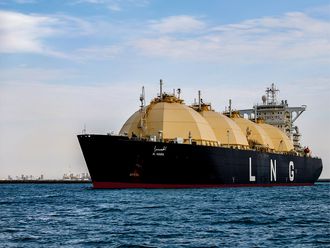London: A surplus of oil stockpiles will continue for many months as global demand remains sluggish, Opec forecast on Friday.
The Organisation of the Petroleum Exporting Countries said that demand for oil will continue to grow slowly for the remainder of 2010 and in 2011, when world economic expansion is projected to be slightly lower than this year's.
"Given the current supply/demand outlook, the overhang in inventories is not expected to change significantly in the coming quarters," it said in its monthly oil report.
Opec left unchanged its forecast of a 1.05 million bpd increase in 2011 in global oil demand to 86.56 million bpd versus 2010.
It based that estimate, which is low by historical standards, largely on its forecast that growth in world gross domestic product (GDP) would remain lacklustre next year — at 3.7 per cent, compared with 3.9 perc ent for 2010.
"The world economy is facing increasing headwinds that will slow the growth momentum going forward," Opec said.
The group cited "recent strength in US consumption" behind a decision to tweak upwards its forecasts for this year's global oil demand.
Its current estimate for 2010 is 85.50 million barrels per day (bpd) — 1.05 million bpd higher than in 2009. The new figure is 100,000 bpd more than it had estimated in July and is identical to the annual increases it forecast for 2011.
The organisation said: "As in the current year, the growth in oil demand is expected to come from the non-OECD (countries), mainly China, India, the Middle East and Latin America, with demand concentrated in the industrial, transportation and petrochemicals sectors."
Harry Tchilinguirian, commodity strategist at BNP Paribas, predicted, however, that the rate of increase in demand would abate.
"We see global oil demand falling back [next year] in line with global GDP growth," he said.
Opec raised its estimate of demand for its own crude in 2010 to 28.74 million bpd and in 2011 to 28.92 million bpd, which was about 80,000 bpd higher than its previous assessment.
Opec members' production has been creeping higher. Members with output quotas — all except Iraq — produced 26.861 million bpd in July according to the organisation, 142,600 bpd more than in June. Including Iraq, production was 29.197 million bpd.












